 Your new post is loading...
 Your new post is loading...
"In magic circles, Robbins is regarded as a kind of legend, though he largely remains, as the magician Paul Harris told me, “the best-kept secret in town.” His talent, however, has started gaining notice further afield. Recently, psychiatrists, neuroscientists, and the military have studied his methods for what they reveal about the nature of human attention."
My latest post for dmlcentral is about a project aimed at family mindfulness of online/offline attention practices. -- Howard "Enthusiasts and skeptics agree that digital media are attention magnets. Pew Internet and American Life Project reported that one in six Americans admitted to bumping into someone or something while texting, and a video from a mall surveillance camera that showed a woman falling into a pool while she attended to the screen of her phone has been viewed four million times. Every professor in the world now faces students who no longer look at the professor, other students, their notepads or out the window, but gaze fixedly at their laptops. Sherry Turkle’s book, Alone Together, warned about the dangers of divided attention and Cathy Davidson’s book, Now You See It, presented a more sanguine view of the way our digital practices affect our attention. In my own recent book, Net Smart, the first of the five essential social media attentions I covered was…attention. Now that more of us have been talking about the need for attention literacy, I was heartened to see somebody doing something about it."
A project from Stanford's Learning, Design, Technology program -- Howard "In an always-on digital age, it isn’t just adults who struggle with distraction, multimedia multitasking, and their negative physical and emotional side effects. At key ages for brain development, children and tweens are trying to navigate their own uses of personal communication technologies. The tension that results between family members around one another’s habits has been hugely–and somewhat ironically–disconnecting.
We’ve observed that families need and want catalysts for dialogue–and action–around their use of digital devices. Yet our focus isn’t just on limiting screen time. We’ve developed a physical toolkit and supporting media to encourage collaborative reflection and exploration. "
Now available in paperback, "Now You See It: How the Brain Science of Attention Will Transform The Way We Live, Work, and Learn," is essential reading for anyone interested in the way human attention and human-created media are co-evolving. -- Howard
More debunking of the digital-natives-have-damaged-attention-spans hype -- Howard "There's no evidence that children today are less attentive or more distractible than kids in the past, according to research just published by a team of Pennsylvania psychologists: Long-Term Temporal Stability of Measured Inattention and Impulsivity in Typical and Referred Children."
This quote is from Jonah Lenrer's book, "Imagine: How Creativity Works," which I highly recommend -- Howard: "When you draw an object, the mind becomes deeply, intensely attentive,” Glaser says. “And it’s that act of attention that allows you to really grasp something, to become fully conscious of it. That’s what I learned from my mother’s face, that drawing is really a kind of thinking.”"
What? You thought distracted drivers texting on cell phones and swerving erratically is a problem? That's so 2011. Imagine a future in which icons flash (Beyond texting: augmented-reality windshields — what could go wrong?
"People who regularly practice meditation may improve their mental focus by altering brain function. Compared to non-meditators, they may be better equipped to quiet brain activity related to mind-wandering, a new study in the Journal of Neuroscience suggests."
"The title "The Myth of Monotasking" is based on the idea that the brain doesn't know how to monotask, in fact the term "multitasking" doesn't really mean much of anything when you think about it carefully since virtually everything we do as humans involves coordinating multiple cognitive tasks all happening at once. This interview helps straighten out some of the confusions around that mushy term and, I hope, helps lower anxiety about how well we are or are not doing against some mythical standard of sustained, focused attention. Bottom line: the mind wanders a lot because the mind's task is to wander."
"Auto dashboards are becoming an arcade of text messages, GPS images, phone calls and web surfing, the government says, and it's asking carmakers to curb those distractions when vehicles are moving."
"The study authors scanned the brains of 14 people -- seven men and seven women -- using functional MRI to measure bursts of activity in the brain. The researchers tracked the brains of the volunteers as they learned how to better use their peripheral vision through a computer game. In the game, participants learned to detect the presence or absence of a tilted letter "T" in the lower left side of a screen while they were distracted by other "T"s. It took about a week for the participants to figure out how to get to the level where their responses were correct 80 percent of the time. This is in contrast to the level of about 10 percent to 20 percent, where some participants began, Corbetta said. The game is similar to day-to-day life in the way that you have to figure out what to pay attention to as you navigate the world. "It's always a balance as to what you see and what you pay attention to," he said."
"This extends to decision-making, which is the main subject of Honeybee Democracy. The bees exercise a collective intelligence that mimics not just small-group decision-making but the cognitive deliberations of our own brains:"
"“Not only are working mothers multitasking more frequently than working fathers, but their multitasking experience is more negative as well,” according to a Michigan State University news release.
“Only mothers report negative emotions and feeling stressed and conflicted when they multitask at home and in public settings,” said Shira Offer, one of the main researchers for the study, in the news release.
Researchers think mothers might have more negative multitasking experiences because the tasks they complete related to housework and children are monitored more often by other people, which causes stress. The authors of the study suggest fathers help mothers more so they don’t have to multitask so much, and that employers should allow men to have more flexible schedules so they can dedicate more time to family. Read more: http://www.foxnews.com/health/2012/01/05/how-multitasking-affects-mental-health/#ixzz1iu7CmdMr"
|
With so much attention focused on the negative aspects of attention -- distraction, multitasking -- as a consequence of our use of digital media, we need more systematic research like this on the relation of our brain's cognitive functions and our media practices -- Howard "During a series of ongoing experiments, [fMRI] images track blood flow in the brains of subjects as they read excerpts of a Jane Austen novel. Experiment participants are first asked to leisurely skim a passage as they might do in a bookstore, and then to read more closely, as they would while studying for an exam. [The researchers] said the global increase in blood flow during close reading suggests that “paying attention to literary texts requires the coordination of multiple complex cognitive functions.” Blood flow also increased during pleasure reading, but in different areas of the brain [suggesting] that each style of reading may create distinct patterns in the brain that are “far more complex than just work and play.” The experiment focuses on literary attention, or more specifically, the cognitive dynamics of the different kinds of focus we bring to reading."
Mindfulness involves self-deprogramming -- Howard "Recognize that programming is everywhere, and it isn't all bad. Your programming started with your parents teaching you things, and both consciously and unconsciously programming you with all of their beliefs and attitudes. That is not necessarily bad — it is usually good. You are better off for having had parents who cared about you and wanted to teach you. But unfortunately, you also inherited all of their misinformation, superstitions, mistakes, and irrational and untrue beliefs."
I walk in the forests near my house six days a week. When I get to the part where I can let my dogs off the leash, I turn off my iPod. -- Howard "The Japanese call it shinrin-yoku - forest bathing."
Will Richardson's book and blogs were essential reading when I first started using social media in teaching. -- Howard "Finnish educator and author Pasi Sahlberg writing in yesterday’s Washington Post:
Many reformers believe that the quality of education improves when schools compete against one another. For cooperation to happen, we need to be participating transparently with the idea that others can build upon what we share, reshare it, curate it, connect it or whatever else. In that vein, it’s why we need to promote a “network literacy” that supports our ability to find, analyze, synthesize and share information and knowledge in safe, effective and ethical ways. In my discussions and snap polling of education audiences, I can tell you we’re nowhere near a tipping point with that in schools."
Via Ann S. Michaelsen
Much of what is being learned about attention comes from studies of reading and reading disorders (I recommened Wolf's "Proust and the Squid" and Dehaene's "The Reading Brain" -- Howard (PhysOrg.com) -- A new brain-imaging study is shedding light on what it means to 'get lost' in a good book — suggesting that readers create vivid mental simulations of the sounds, sights, tastes and movements described in a textual narrative while...
Part I was Ethan Zuckerman's piece about "The Tweetbomb and the Ethics of Attention." http://doalchemy.org/2012/05/the-ethics-of-attention-part-2-bots-for-civic-engagement/ ; -- Howard "Ethan had written previously about “the fierce battle for attention” when covering journalistic integrity and Foxconn; the tweetbomb story, meanwhile, focuses on emergent practices around gaming attention in social media platforms (modern infrastructures for communication), away from the usual norms situated around attention in news-sharing ecosystems. These practices relate to what Ethan calls “attention philanthropy”: if you can’t move content yourself, see if you can motivate an attention-privileged individual to do it for you. The problem is that attention is an issue of scale: how do you get the attention of everyone?. Social capital becomes a literal currency; we exchange the value embedded in networks in an attention economy. There are a number of assumptions underlying traditional mass media technologies, like radio and television: broadcast, primetime, the mass audience; but with the internet (like with cable and satellite radio), attention is splintered, across a multitude of channels, streams, feeds."
"You're at a party. Music is playing. Glasses are clinking. Dozens of conversations are driving up the decibel level. Yet amid all those distractions, you can zero in on the one conversation you want to hear. This ability to hyper-focus on one stream of sound amid a cacophony of others is what researchers call the "cocktail-party effect." Now, scientists at the University of California in San Francisco have pinpointed where that sound-editing process occurs in the brain—in the auditory cortex just behind the ear, not in areas of higher thought. The auditory cortex boosts some sounds and turns down others so that when the signal reaches the higher brain, "it's as if only one person was speaking alone," says principle investigator Edward Chang. These findings, published in the journal Nature last week, underscore why people aren't very good at multitasking—our brains are wired for "selective attention" and can focus on only one thing at a time. That innate ability has helped humans survive in a world buzzing with visual and auditory stimulation. But we keep trying to push the limits with multitasking, sometimes with tragic consequences. Drivers talking on cellphones, for example, are four times as likely to get into traffic accidents as those who aren't."
"Much has been said about what makes us human and what it means to be human. Language, which we’ve previously seen co-evolved with music to separate us from our primal ancestors, is not only one of the defining differentiators of our species, but also a key to our evolutionary success, responsible for the hallmarks of humanity, from art to technology to morality. So argues evolutionary biologist Mark Pagel in Wired for Culture: Origins of the Human Social Mind — a fascinating new addition to these 5 essential books on language, tracing 80,000 years of evolutionary history to explore how and why we developed a mind hard-wired for culture."
"Why do we get some of best ideas in the shower? Harvard University researcher and psychologist Shelley H. Carson, author of The Creative Brain, says distraction isn’t always a bad thing."
"Becoming aware of the categories you use is a first step in freeing the mind to perceive other possibilities, other strengths in our students, other ways of thinking about teaching and learning. Choosing to label the positive rather than the negative not only changes the way you perceive the situation, but the way you interpret neutral behaviors. This opens up many possibilities that you might not have noticed before."
"Thinking about the sheer volume of information — stories, images, videos, data — available from The New York Times can evoke a simultaneous glee and terror. It is simply impossible for readers to see them all. The task for beta620, the Times experimental projects group, launched Deep Dive that uses the Times’ massive cache of metadata from stories to go, as the name suggests, deeper into a news event by pulling together related articles. So Deep Dive would provides readers a collection of stories relating to a topic, based on whatever person, place, event or topic of their choosing."
Via Giuseppe Mauriello
"Neuroscientists Stephen Macknik and Susana Martinez-Conde, the founders of the exciting new discipline of NeuroMagic — and also members of the Magic Castle, Magic Circle, International Brotherhood of Magicians, and the Society of American Magicians — have convinced some of the world’s greatest magicians to allow scientists to study their techniques for tricking the brain. Magic tricks work because humans have a hardwired process of attention and awareness that is hackable—a good magician uses your mind’s own intrinsic properties against you in a form of mental jujitsu. By understanding how magicians hack our brains, we can better understand how the same cognitive tricks are at work in advertising strategy, business negotiations, and all varieties of interpersonal relations. When we understand how magic works in the mind of the spectator we will have unveiled the neural bases of consciousness itself."
|

 Your new post is loading...
Your new post is loading...
 Your new post is loading...
Your new post is loading...














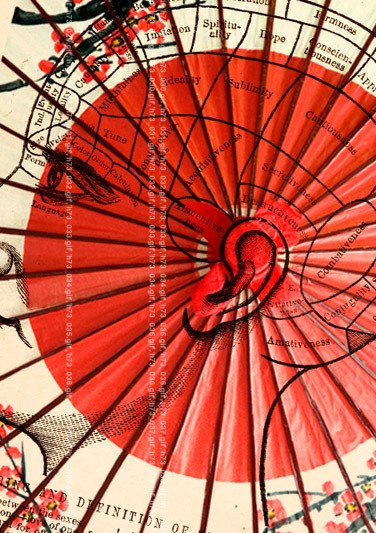




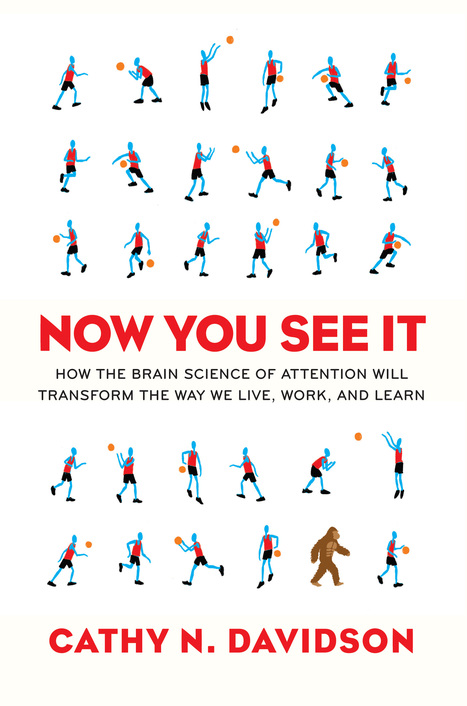
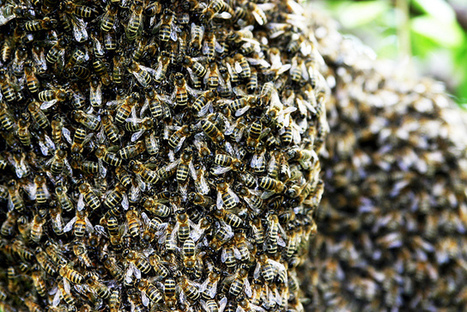

![During a series of ongoing experiments, [fMRI]... | attention | Scoop.it](https://img.scoop.it/iX2rm9vMZJ38k_YN3ffSbDl72eJkfbmt4t8yenImKBVvK0kTmF0xjctABnaLJIm9)

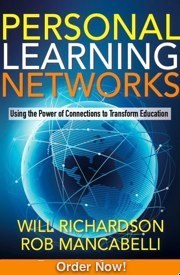
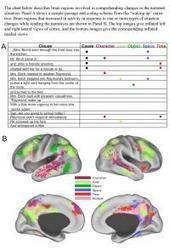


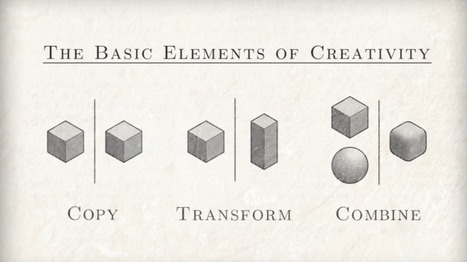

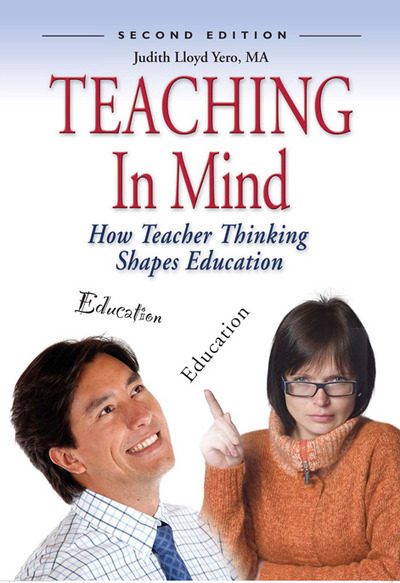
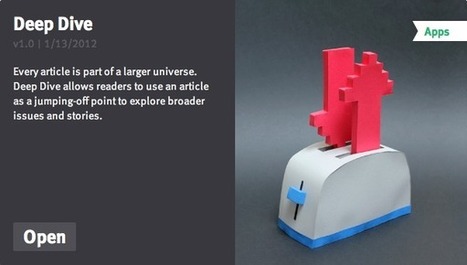
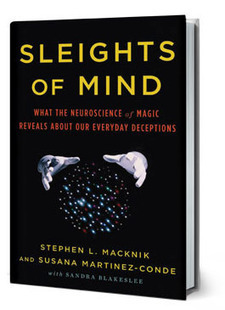





What might a pickpocket have too say about story?